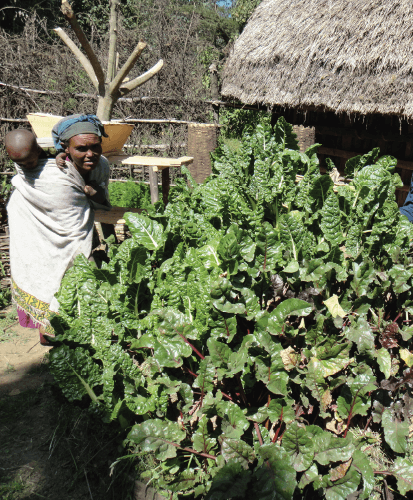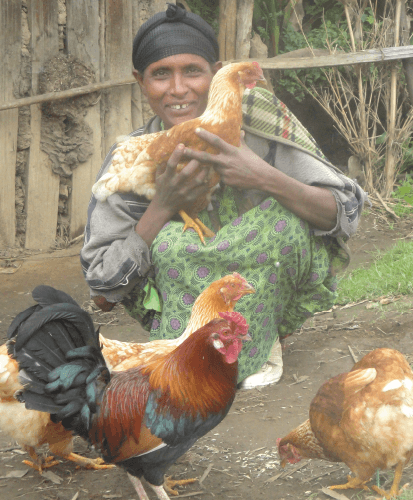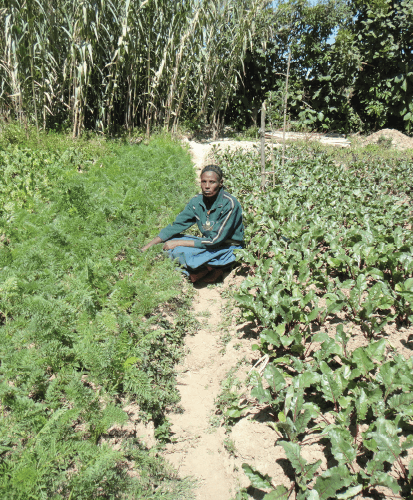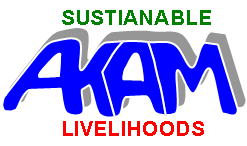Farmer Household Empowerment through Women
Farmer Household Empowerment through Women
The Project: Farmer Household Empowerment through Women (FHEW) will run for 4 years. from July 2013 to June 2017 in five kebeles in Dendi District. West She. Zone of Oromia Region. i.e., Kotoba Dheleta. Tirange Shube. Ulla Dulo. Dendi Sulu and Dendi Mumicha. The project kebeles are bordered by four Districts (Ambo in the North. Wonchi in the West, Dawo in the East and Walls° in the South).
The project will work directly with 1.300 farming households organ,. into 65 seff-help groups (SH0s, which will implement all proj. measures. The water scheme will create access to potable water for 800 households. The project will therefore directly impact 8,176 family members (4088 male and 4088 females). The entire population in the targeted kebel. as well as people living in adjacent W.I. sharing common market at Kotoba and reached through district extension system are indirect beneficiaries.
The project will support women farmers from poor and vulnerable smallholder households to becoming food secure, productive and self-confident age. of their own and their Tamil., development through leading strong community support systems. increasing farm productivity. managing water schemes. improving environmental management and creahng new employment opportunities. The Overall Goal is to contribute to food secure and economical, stable farmer communities in Dendi District. The project purpose is 1,300 poor a. vulnerable households with balanced nutrition, access to safe water, increased income and improved environment by 2017 though empowering women to adopt sustainable practices that diversify a. intensify crop and INestock production systems Integrated with new income generahng opportunities. Through self-help groups (SHOs, women will enhance self-reliant development and integration Into local market systems in a sustainable a. gender-sensitive manner. The key activiti. of the project are the following.
Establishment of community support structures: Food security. Safe water. sanitation a. hygiene; Income generation and self-employment, Sustainable natural resource management; Develop community-bas. training and learning facilities. FHEW project major stakeholders include the vanous Bureaus of the Oromia Regional State and their respective subordinate Departments and Offices at Zonal and District levels - Bureaus for Finance and Economic Development. Agriculture. Water. Min. and Energy. Livestock Agency and Cooperative Promotion. They will provide technical support by participating in project planning. field and desk monitoring of project progress. and evaluation; as well as sharing of experiences and facilitating good working conditions.
something
small detail to highlight
something
small detail to highlight
something
small detail to highlight
What we care for

Background Location
Outcomes
The project has progressed. smooth, with its 9. households organized in 50 self-help groups in below:
1. 9. families (4920 direct beneficiaries, organized 50 self-help groups (SHEis) were continued to active, engage in integrated a. diversified crop-livestock farming practices promote. by the project. As a result, the project participants obtain. increased productivity and yield; that have positive effects both on the nutrition and health of the target. families as well as the community around. According to the observation of the farms and discussion with the project.t participants. households increased yield from potatoes. various vegetables. matt — security, and nutrition as well EIS MCOMe — sustenance:
2. Various past household and farm assessments and discussions with the project participants.. reveal. that 9841amilies, in one way or the other report a sustained improvement in the management of their natural resources due to application of organic matter, use of fuel-efficient stoves, planting tr.s, increased access to water, improved hygiene and sanitation practices. The enhancement of other livelihood options, diversification, and increase income will contribute to the better management and conservation of natural resources. The awareness created in the past, practical involvement of the group members in preparing a. applying organic fertilizer, and planting of different tree/forage trees show that the beneficiaries are well towards improving the management of natural resources. in a sustainable manner. The current, applied m.ern livest. k raising like better housing and cut & carry system also improves the conservation a. wise use of natural resources..
3. The project participants have increased income a. expenditure through the sale of surplus farm produce as well as increas. access to markets and savings and credit. With ‘betel:: I ciPeP ri=d°tfoi IlIcLren inv:11 bre°ZePericZtr 717;raT4’2408091 rdi 4201 and 6300 Birr respectively
Mr. Mesfine Hailemanam. one of the FOMDALS. said. “Before I joined the project my earning was not adequate to get us food throughout the year. After I joined the project. the training on improved agriculture and livestock management techniques. the agricultural inputs I received a. the regular follow up services and advises by the project staff. as veell as the group pressure and interest to excel have encouraged me to work hard. I have planted seven vegetable types, including potato. I prepared multi-purpose tree seedlings In the year. I am able to sell and eam around ETB 9,940 filKP343i on, from sell of vegetable seedling, vegetables a. potatoes. We consumed sufficient vegetables at home (pepper. onion. carrot, b.t root, cabbage and Swiss chard and potato, from mY and Kotoba garden I could estimate my consumption amounts to ETB 3.100 (11KP107).1 earned ETB 500 from sell of multipurpose tree seedlings. have Pen.ited from our group’s saving and credit scheme by borrowing me six times during the year. I have used the loan on income generation activity. for medical purpose and other household exPendaure. NOw mY livelihood haS improved. My plan . to construct corrugated iron Sh.t CO.red hOUSe, exPand my vegetables and potato farming to earn more income and engage in fattening business.”
Mrs. Bekelu. Burkitu Gute SHG member and a mother of five children said…the project has capacitated me in improving my livelih.d. The income I gained from sell of vegetables and income generation activities has increasedgmypcapacity to expend my fa mipand toe 1;:::17:pevnedsel tionuVErB13,1=r7Kr=o’r ead lcvallannOjf tWilonX1 icit7pu Iciht:se of two sheep. consumables from the income I obtained. The increased income enabled me a. to save ETB 1300 fUKP45).
A11984 families have saving and cr.it schem., from which members take loapnsefor dinilraegnedi=ea =1111;ticicOnaorittunslal7oascec117hseT;Tsaent:%:::it °”po u let 4: en ma, are badly in need of or fail to buy exerci. b.k for their children due to absence of money.
4. All the 50 SHO members were involved In planning & implementation of group & or community works. The groups were engaged in community action plans by mobilising their labour & resources for community work. Download KoS1.1, Outcanes.


